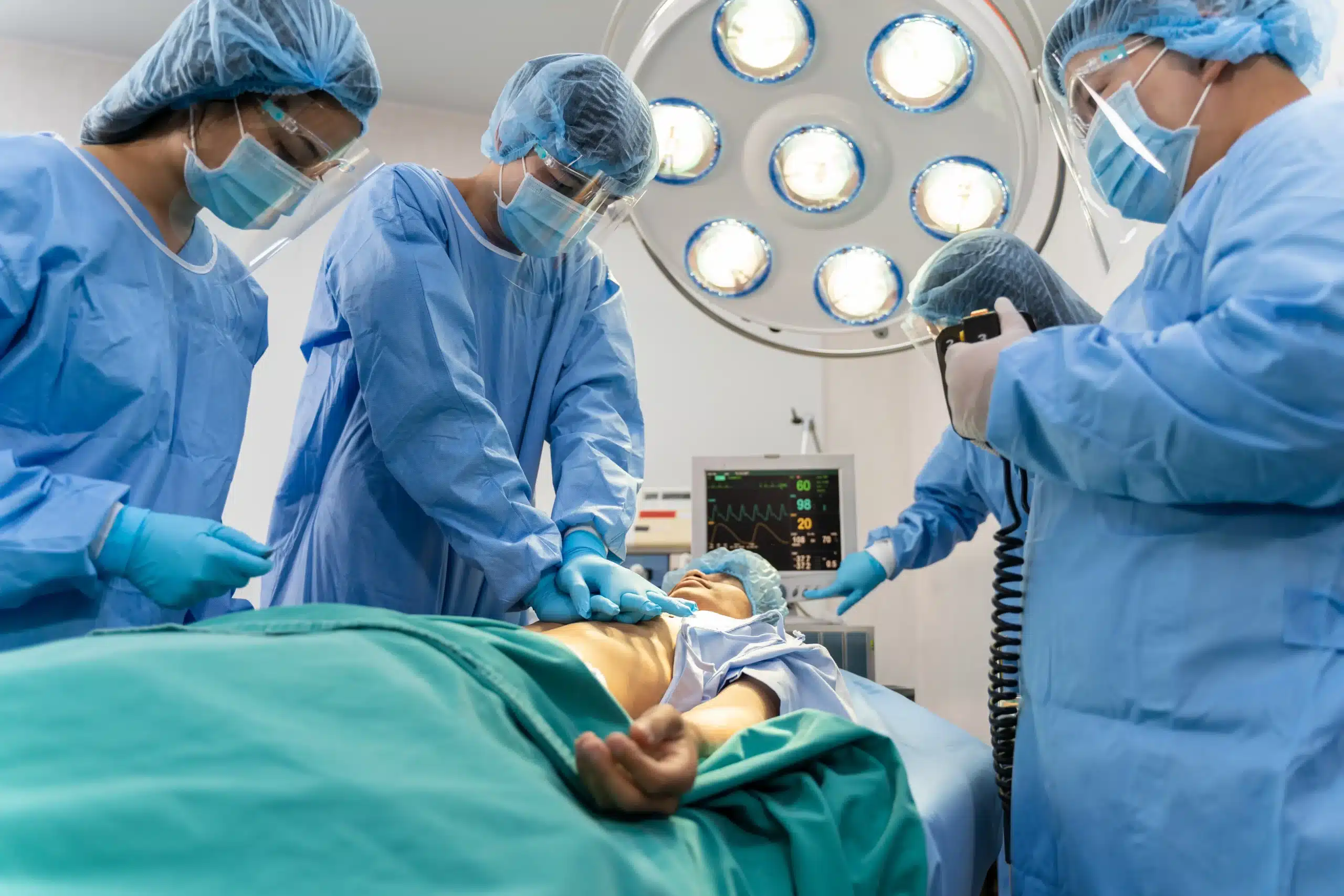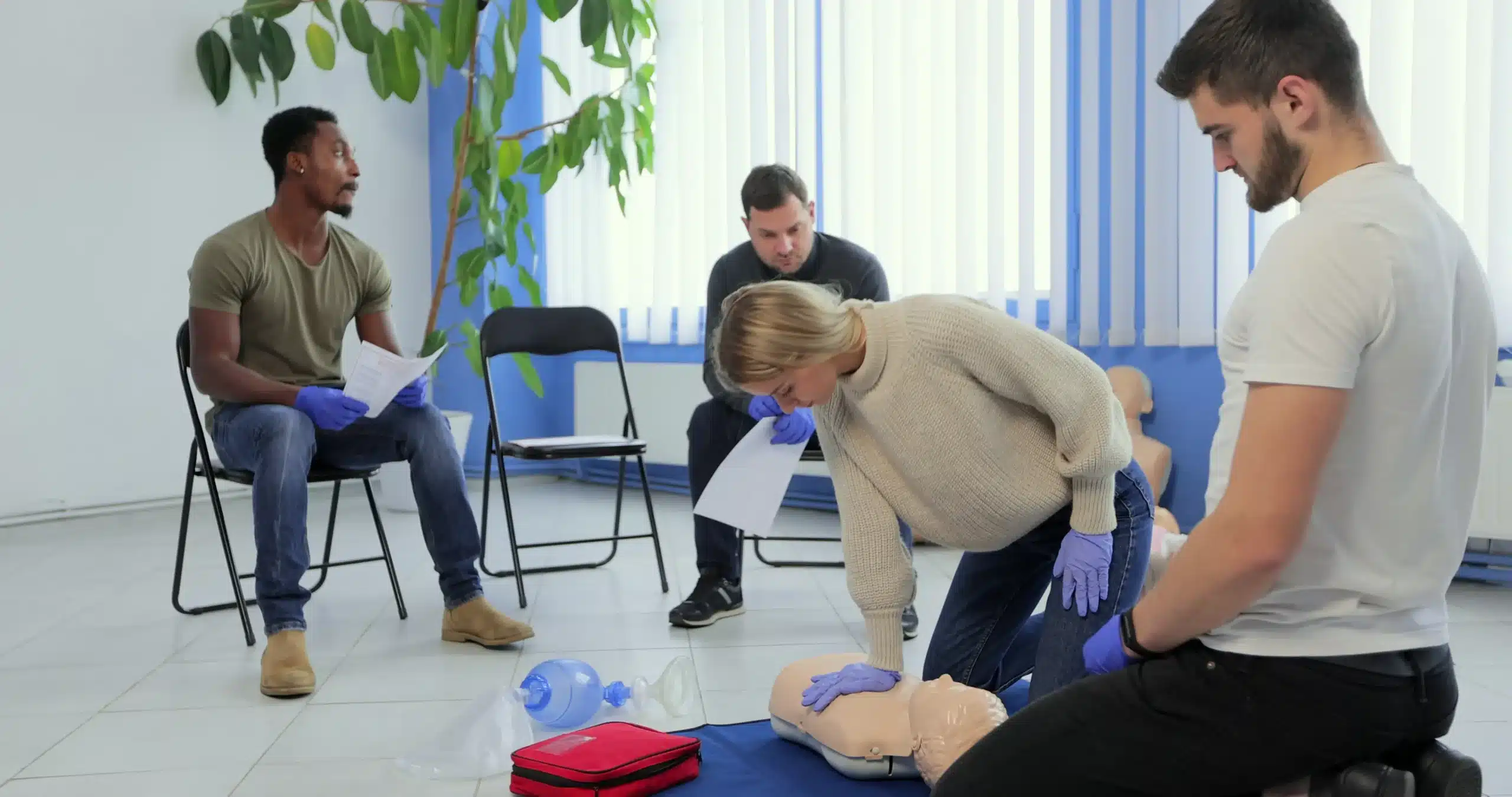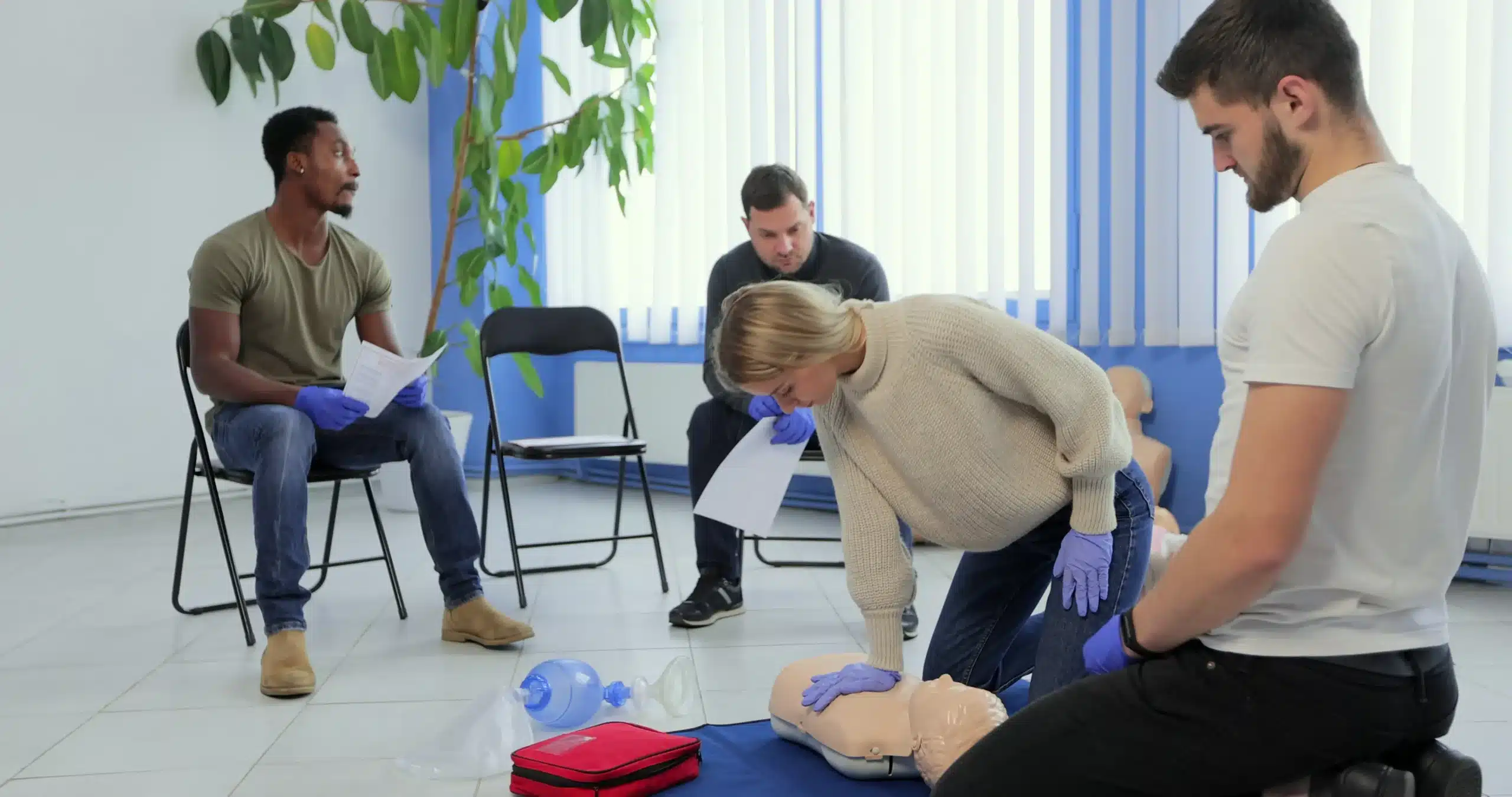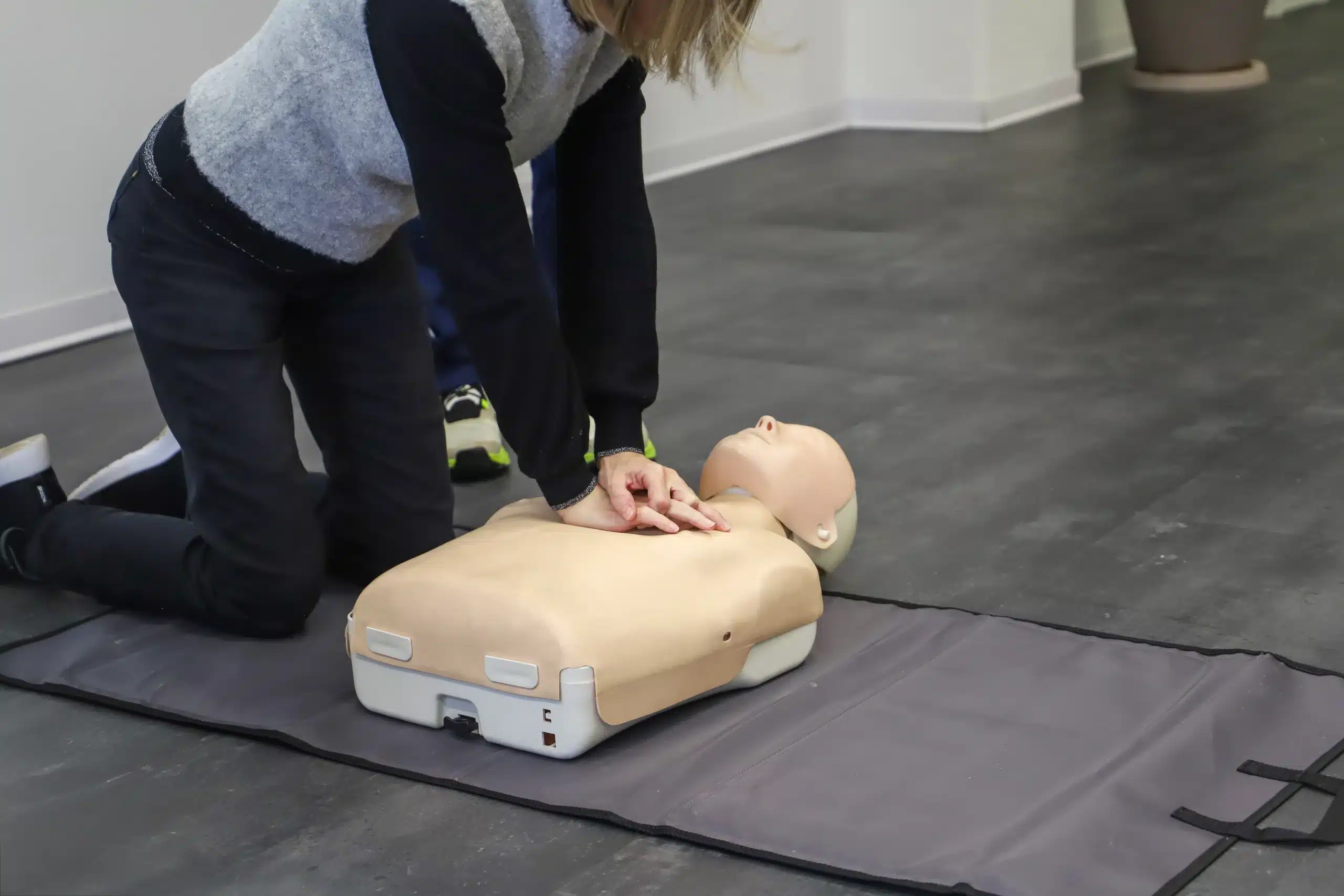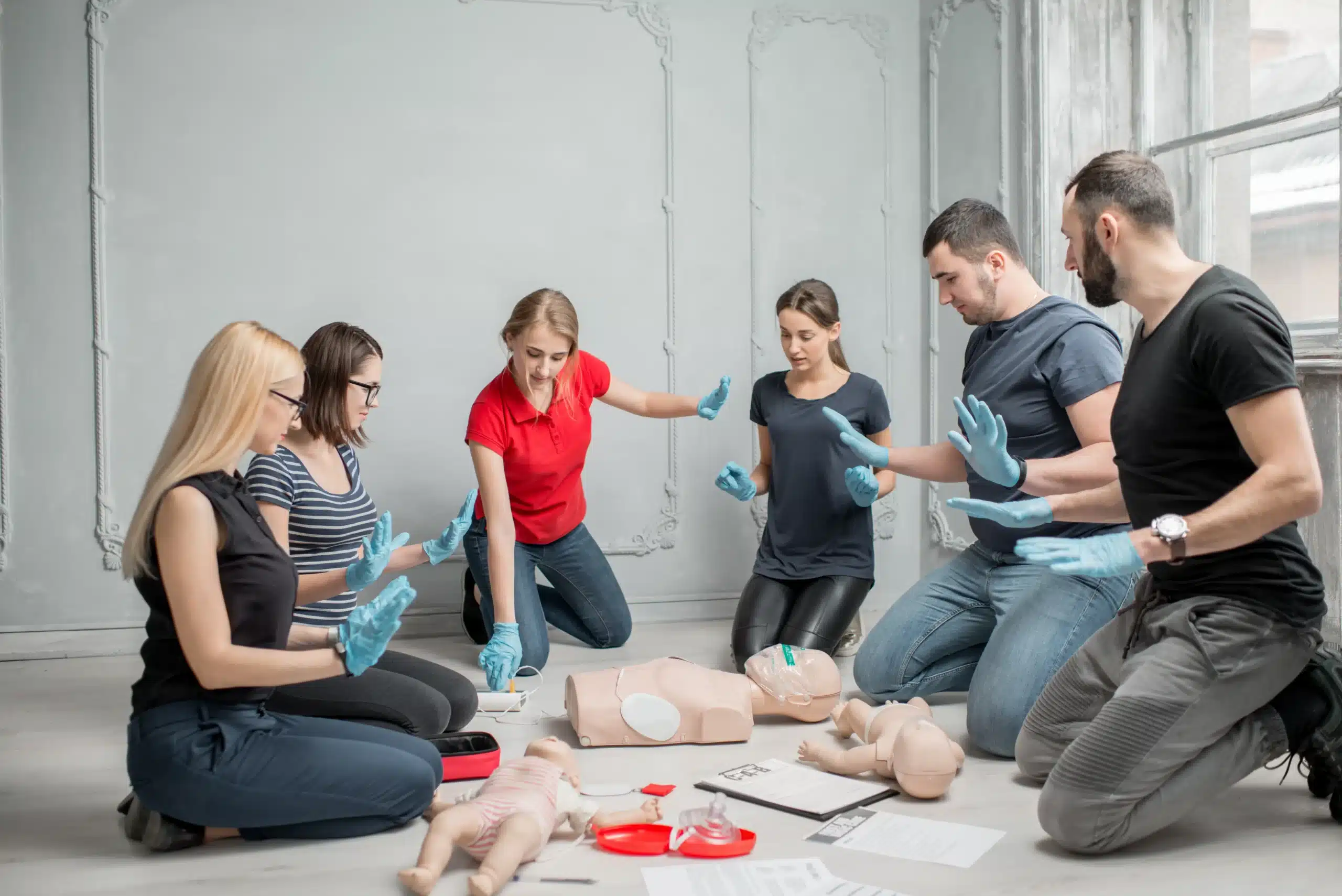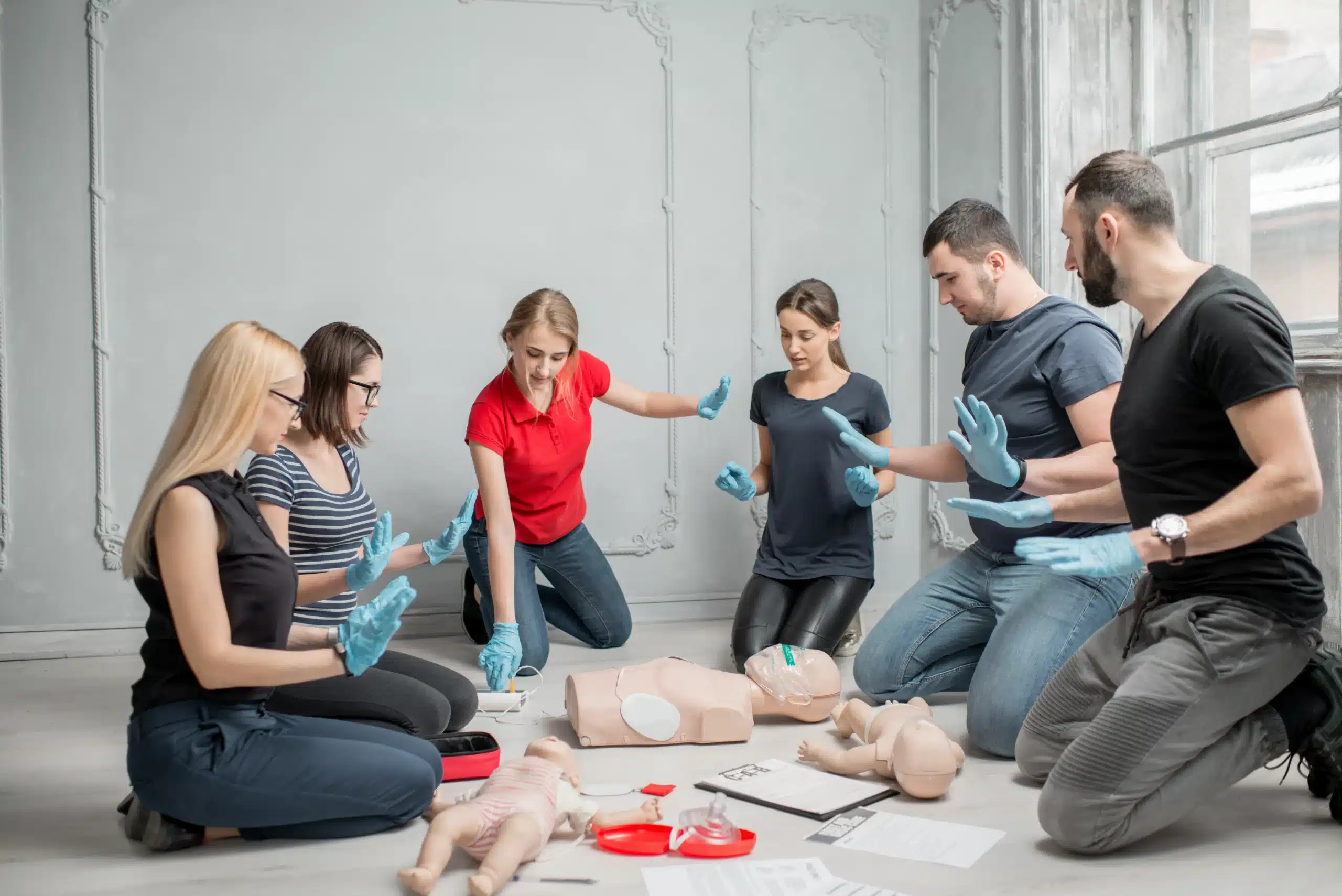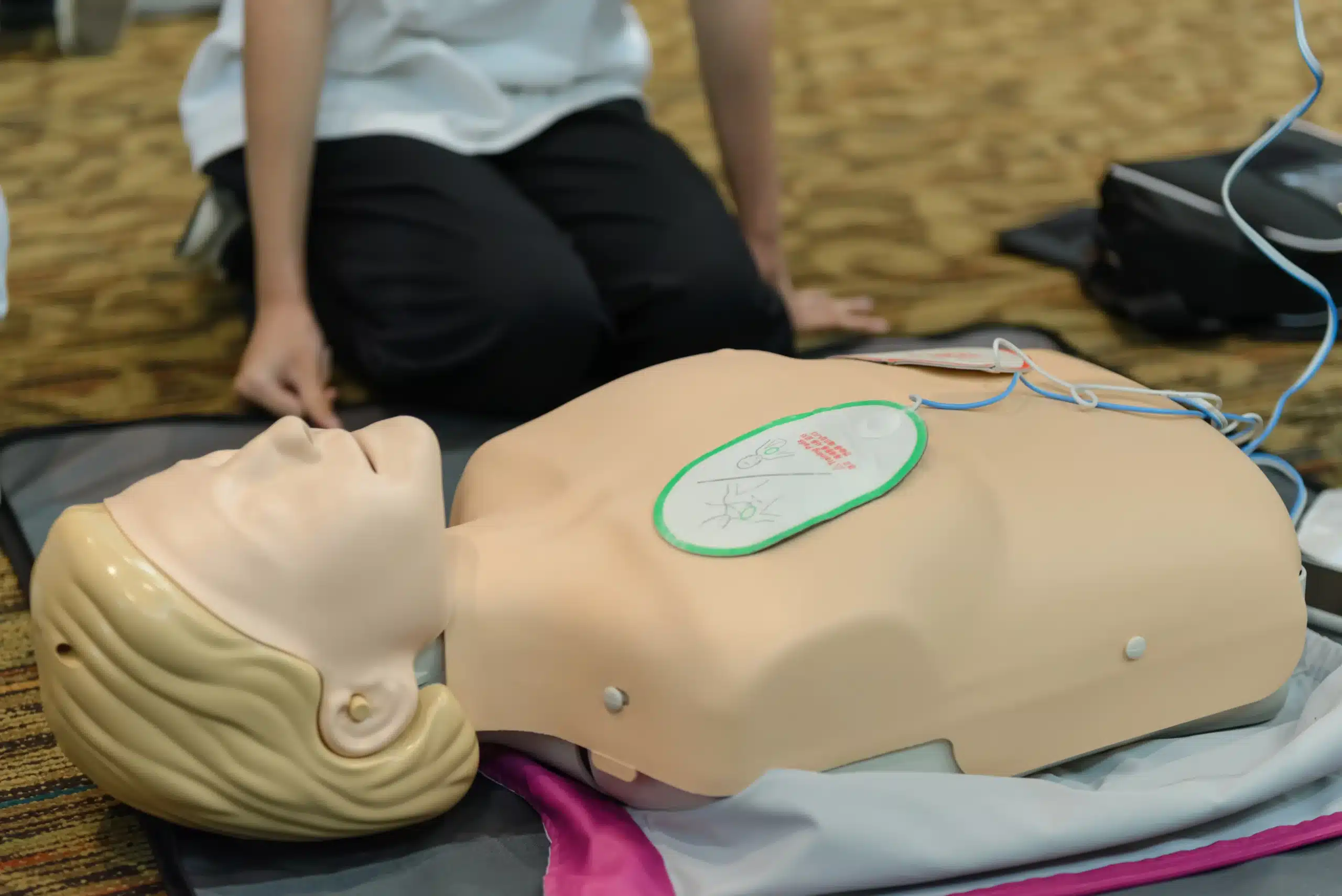Working in healthcare, you know that in critical situations, seconds can make all the difference. When a patient’s life hangs in the balance, having the right skills and knowledge to provide advanced cardiac life support is paramount. This is especially true in a bustling city like San Francisco, where medical emergencies can happen anytime, anywhere. This article explores the ins and outs of Advanced Cardiac Life Support (ACLS) certification in San Francisco, guiding you through the process of acquiring this essential skill set. We’ll cover everything from understanding the core concepts of ACLS to finding the right training program and navigating the certification process. Whether you’re a seasoned healthcare professional looking to refresh your credentials or just starting your journey in emergency medicine, this guide will provide valuable insights into advanced cardiac life support in San Francisco.
Key Takeaways
- ACLS builds on BLS skills: It provides healthcare professionals with advanced training for managing life-threatening cardiovascular emergencies. Choose a course format—in-person, online, or blended—that suits your needs.
- Preparation is essential for ACLS success: Use the study materials provided, practice with realistic scenarios, and develop strategies for managing test anxiety to perform your best.
- Maintain your skills after certification: Explore continuing education opportunities and free resources to stay current with the latest guidelines and ensure your proficiency in advanced cardiac life support.
What is Advanced Cardiac Life Support (ACLS)?
What is ACLS?
ACLS is an advanced, evidence-based system of medical care for adults with life-threatening illnesses or injuries. It builds on the foundation of basic life support (BLS) with advanced procedures, medications, and tools to stabilize patients in critical conditions, often before they reach a hospital. Think of ACLS as the next level of emergency care, expanding on the basics of CPR and rescue breaths. It addresses a range of serious emergencies, from cardiac arrest and stroke to respiratory failure.
ACLS protocols involve continuous ECG monitoring to assess heart rhythms, defibrillation to restore a normal heartbeat, and administering medications. These interventions require specialized training and a deep understanding of how the cardiovascular system works.
Why is ACLS Crucial for Healthcare Professionals?
For healthcare professionals, ACLS certification is a vital skill set. In medical emergencies, every second counts. The “Chain of Survival,” a series of actions that improve survival rates from cardiac arrest, emphasizes the importance of early intervention. Early defibrillation, ideally within three to five minutes of collapse, significantly increases the chance of survival. ACLS equips healthcare providers with the knowledge and skills to quickly assess a patient, make critical decisions, and perform these life-saving interventions.
Whether you’re a physician, nurse, paramedic, or respiratory therapist, ACLS training provides the expertise to manage complex medical emergencies effectively. It gives you the confidence to handle situations like cardiac arrest, stroke, and acute coronary syndromes, ultimately improving patient outcomes. ACLS courses cover essential topics such as airway management, rhythm recognition, and pharmacology, providing the tools needed to deliver the best possible care in critical moments.
Top ACLS Certification Providers in San Francisco
Finding the right ACLS certification course can feel overwhelming, so we’ve compiled a list of reputable providers in San Francisco to help you get started. We’ll cover key features of each to help you make the best choice for your needs.
Safety Training Seminars
Safety Training Seminars focuses on providing affordable BLS, ACLS, PALS, CPR, and First Aid training. They offer AHA-certified courses seven days a week throughout the Bay Area, making scheduling convenient. If you’re looking for a budget-friendly option, Safety Training Seminars is worth considering. Check their website for course schedules and locations.
HeartStart CPR
HeartStart CPR provides AHA-certified ACLS initial and renewal courses throughout the San Francisco Bay Area. They offer same-day certification cards upon successful course completion, which is a significant advantage for those needing certification quickly.
Bay Area CPR
Bay Area CPR emphasizes the American Heart Association’s RQI (Resuscitation Quality Improvement) program for BLS, ACLS, and PALS certifications. They highlight RQI as an efficient and modern approach to certification, making it a convenient option for busy healthcare providers. If a streamlined process appeals to you, explore their RQI offerings.
UCSF Kanbar Center
The UCSF Kanbar Center offers various AHA courses, including BLS, ACLS, and PALS. These courses are primarily designed for UCSF students, staff, and faculty. If you’re affiliated with UCSF, this is a convenient option for obtaining your ACLS certification.
ACLS Course Formats and Costs
Choosing the right ACLS course format depends on your learning style, schedule, and budget. Let’s break down the different options available in San Francisco, along with their associated costs.
In-Person Training
Traditional in-person ACLS training offers a structured learning environment with direct interaction with instructors and peers. This format is ideal for those who thrive in a classroom setting and prefer hands-on learning. Safety Training Seminars offers in-person ACLS classes, often with a focus on affordability and convenience for students in the Bay Area. In-person training allows for immediate feedback and clarification, fostering a deeper understanding of the material.
Online Courses
Online ACLS courses provide flexibility for busy professionals. These courses typically involve a self-paced online component covering the theoretical knowledge, followed by a shorter in-person skills session for hands-on practice and assessment. Bay Area CPR offers this blended learning approach, combining online modules with a practical skills test at a local testing center. This format allows students to complete the coursework at their own pace before demonstrating their skills in person.
Hybrid Learning Options
Hybrid learning models combine the benefits of online and in-person training. The UCSF Kanbar Center, for example, offers a hybrid ACLS course that includes a significant online portion followed by an in-person skills session. This blended approach allows for a more comprehensive understanding of the material while still offering some scheduling flexibility.
Initial Certification Pricing
The cost of initial ACLS certification varies depending on the provider and course format. Generally, you can expect to pay around $260 for an initial ACLS course, which typically includes both the online and in-person components. HeartStart CPR provides more information on ACLS class pricing, giving you a benchmark for comparison shopping. Remember to factor in any additional costs, such as study materials or travel expenses.
Renewal Course Fees
ACLS certification is valid for two years. Renewal courses are typically shorter and less expensive than initial certification courses. The cost for an ACLS renewal course is usually around $190. These courses focus on refreshing your knowledge and skills to maintain your certification. Many providers offer both in-person and online renewal options.
Prerequisites and Qualifications for ACLS Certification
Required Healthcare Background
ACLS certification is designed for healthcare professionals regularly involved in managing cardiopulmonary arrest or other cardiovascular emergencies. This includes physicians, nurses, paramedics, respiratory therapists, and other specialized healthcare providers. The course builds upon a foundation of basic life support (BLS) skills and incorporates advanced techniques, medications, and equipment to stabilize patients during these critical events. A basic understanding of medical terminology, anatomy, and physiology is essential for grasping the complexities of ACLS. If you’re considering pursuing ACLS certification, ensure your current role or future career goals align with this advanced training.
BLS Certification Requirement
A current BLS certification is a prerequisite for ACLS courses. BLS skills are the foundation of resuscitation and essential for effective teamwork during emergencies. While you won’t receive a separate BLS card after completing ACLS, the course assumes you have these fundamental skills and integrates them into more advanced procedures. Check out our BLS certification courses if you need to renew or obtain your BLS certification. Ensure your BLS certification is current before enrolling in an ACLS class.
Other Necessary Qualifications
In addition to a healthcare background and BLS certification, a basic foundation of medical knowledge is also necessary to succeed in an ACLS course. This includes a working understanding of cardiovascular pharmacology, electrocardiogram (ECG) interpretation, and airway management techniques. While prior experience with these concepts is helpful, a willingness to learn and actively participate is equally important. The ACLS curriculum covers a significant amount of material quickly, so be prepared to engage with the content and ask questions. Our instructors are dedicated to providing comprehensive training and support to help you master the skills and knowledge required for ACLS certification.
What to Expect in an ACLS Course
Getting ACLS certified is a rewarding process. Here’s a glimpse into what awaits you during your ACLS training.
Course Duration and Key Topics
ACLS courses blend online learning with in-person skills sessions. Expect to spend about 3–4 hours on the online portion, covering essential topics like advanced cardiovascular life support protocols, emergency response strategies, and medication administration in critical care situations. This online segment often uses a “HeartCode” format. After completing the online modules, you’ll move on to a hands-on skills test, typically lasting 30–40 minutes. Recertification is required every two years to keep your skills sharp and knowledge current. Our RQI classes offer a streamlined recertification process.
Hands-On Practice Components
ACLS training isn’t just about theory—it’s about applying your knowledge. The in-person skills session, usually around 4 hours, provides crucial hands-on practice. You’ll work through realistic scenarios, honing the techniques needed for effective patient care during cardiac emergencies. This practical experience builds confidence and reinforces the information learned in the online modules.
Written Examination
A written exam will assess your understanding of ACLS protocols and guidelines. Many programs offer practice exams, allowing you to review the material and identify areas needing extra attention. This written component ensures a solid grasp of the principles behind ACLS. Our low price guarantee ensures you receive excellent value, including access to all necessary study materials.
Practical Skills Assessment
The practical skills assessment is where you demonstrate your proficiency in essential ACLS skills, like medication administration and CPR techniques. It’s an opportunity to apply what you’ve learned in a simulated real-world environment. Many resources and practice opportunities are available to help you prepare and feel confident. Contact us to learn more about our ACLS courses and how we can support your success.
The ACLS Certification Process
Certification Validity
ACLS (Advanced Cardiovascular Life Support) certification is essential for healthcare professionals who respond to cardiovascular emergencies. Your ACLS certification is valid for two years. After this period, recertification is required to stay up-to-date with the latest guidelines and best practices in emergency cardiovascular care. This ensures you can confidently and effectively manage these critical situations.
Renewal Requirements
The American Heart Association (AHA) simplified the ACLS renewal process. They no longer have separate initial and renewal courses. Whether you’re getting certified for the first time or renewing your existing credentials, you’ll participate in the same comprehensive in-person training. This hands-on training covers essential skills and knowledge, ensuring everyone meets the same high standards. You can expect the total cost for ACLS certification, including the online portion, skills testing, and your official AHA card, to be around $290. For the most current pricing, check directly with your chosen provider, like Safety Training Seminars.
Unique Features of ACLS Courses in San Francisco
San Francisco offers some distinct advantages when it comes to ACLS certification. These features make obtaining and maintaining your credentials easier and often more affordable.
Same-Day Certification Options
Many ACLS providers in San Francisco offer same-day certification cards. This is incredibly helpful if you need your ACLS credentials quickly for a new job or other pressing deadlines. No more waiting for your card to arrive in the mail—get certified and get to work.
Flexible Learning Formats
Juggling a busy schedule? San Francisco ACLS courses understand. Many providers offer blended learning formats, combining online coursework with in-person skills sessions. This approach allows you to complete the online portion at your own pace, then schedule a short skills test at a convenient location. This hybrid learning model offers the best of both worlds: comprehensive online instruction and the essential hands-on practice required for ACLS certification.
Competitive Pricing and Price Matching
Cost is always a factor. Luckily, ACLS courses in San Francisco are competitively priced. Some providers even offer price matching, ensuring you get the best possible deal. Check with various training centers and compare their pricing to find one that fits your budget. You might be surprised at the affordable options available.
Comprehensive Curriculum Aligned with AHA Guidelines
Rest assured that ACLS courses in San Francisco adhere to the latest American Heart Association (AHA) guidelines. These courses cover essential life-saving skills, including airway management, rhythm recognition, and team dynamics. The curriculum is designed to prepare you for real-world emergencies, giving you the confidence and competence to provide effective advanced cardiac life support. Learn more about ACLS course content and what to expect.
Prepare for Your ACLS Course
Getting ready for your ACLS course can make a real difference in how well you perform and how confident you feel. This section covers key steps to help you prepare.
Study Materials and Resources
Your ACLS provider should give you access to the most current study materials. These might include textbooks, eLearning modules, and other resources aligned with the American Heart Association guidelines. Safety Training Seminars offers nationally accredited certifications and convenient online access, allowing you to study at your own pace. Take advantage of these resources to familiarize yourself with the algorithms, protocols, and pharmacology involved in advanced cardiac life support.
Practice Exams and Scenarios
ACLS courses go beyond the books, using realistic scenarios to get you ready for real-world emergencies. These scenarios simulate the kinds of situations you might encounter as a healthcare provider, from cardiac arrests to strokes. Practicing with these scenarios helps build your critical thinking skills and your ability to respond quickly and effectively under pressure. Cascade Training Solutions offers further insights into these scenarios. Many ACLS courses also include practice exams, which are a great way to assess your knowledge and identify any areas where you need to focus your study efforts.
Tips for Overcoming Common Challenges
ACLS certification involves a rigorous evaluation of both your knowledge and skills. One common challenge is test anxiety. Taking practice tests can help reduce this anxiety and improve your performance on the actual exam. Save a Life offers helpful tips for succeeding in your ACLS course. Another challenge is managing the psychological stress that can come with dealing with life-or-death situations. Understanding these challenges and developing coping mechanisms is crucial for your well-being and your effectiveness as a healthcare professional. ComfiKare CPR discusses the psychological aspects of ACLS training. Remember, preparation is key to success in your ACLS course. By utilizing the available resources, practicing scenarios, and focusing on your study efforts, you’ll be well-equipped to handle the challenges and achieve your certification goals.
Choose the Right ACLS Course for You
Choosing the right Advanced Cardiac Life Support (ACLS) course is a crucial step in advancing your healthcare career. With various providers and formats available, it’s essential to consider your individual needs and learning style to ensure a successful and enriching experience.
Factors to Consider
Before jumping into an ACLS course, take a moment to assess your existing medical knowledge. ACLS builds upon a foundational understanding of healthcare practices. You’ll want to ensure you’re well-prepared to grasp the advanced concepts presented in the training. If you’re feeling a little rusty, consider brushing up on your basic life support skills or fundamental medical principles. This will set you up for success and allow you to fully benefit from the ACLS curriculum. A strong foundation will make the more complex material easier to understand and apply.
Comparing Providers
San Francisco offers a range of ACLS providers, each with its own strengths. Safety Training Seminars is known for its affordability, offering some of the lowest prices in the Bay Area for BLS, ACLS, PALS, CPR, and First Aid classes. For those seeking a modern and efficient certification process, the American Heart Association’s RQI program is a popular choice. This program provides a streamlined path to obtaining your official AHA BLS, ACLS, and PALS certification cards. Researching different providers and comparing their course offerings can help you find the perfect fit for your needs.
Making an Informed Decision
To make the best choice, think about the potential challenges you might encounter during the course. ACLS assessments can be demanding, so understanding common hurdles and how to overcome them is key. Preparing for these challenges ahead of time will make your learning experience smoother and more effective. Also, consider the practical application of ACLS skills. Many courses incorporate real-life scenarios to simulate the pressures and complexities of emergency situations. This hands-on practice is invaluable for building confidence and proficiency in applying your knowledge. By weighing these factors, you can confidently choose an ACLS course that aligns with your learning style and professional goals.
Post-Certification Support and Resources
Earning your ACLS certification is a significant achievement, but your learning journey doesn’t end there. Continued learning and access to resources are key to maintaining your skills and staying at the forefront of resuscitation science. This ongoing development is essential for delivering the highest quality patient care. Here’s what you should know about the support available after certification:
Continuing Education Opportunities
Cardiac life support is a dynamic field. Continuing education courses, such as the Advanced Cardiac Life Support (ACLS) program from Health & Safety Institute (HSI), offer healthcare providers opportunities to refresh their knowledge and hone their skills. These scenario-based courses let you apply what you’ve learned in simulated real-world emergencies, ensuring you’re ready for anything. Look for courses that follow the latest American Heart Association guidelines.
Access to Free Resources
Many providers offer free resources to help you maintain your ACLS proficiency. Save a Life offers free courses in ACLS, PALS, ECG rhythms, and BLS. Using these resources between recertification periods can significantly strengthen your skills and knowledge. You can also find free study materials, practice exams, and other helpful resources online.
Ongoing Instructor Support
After you complete your course, don’t hesitate to contact your instructors or training center for continued support. Many providers, including ACLS.com, offer assistance after your course ends. Whether you have questions about specific procedures or need a refresher on course content, your instructors are there to help. This ongoing support can be invaluable as you apply your ACLS skills in your work. Consider connecting with your instructors and classmates to build a supportive network for shared learning.
Related Articles
- ACLS HeartCode San Francisco: Your Certification Guide – San Francisco Bay Area CPR Classes
- AHA ACLS Classes in Bay Area, CA – San Francisco Bay Area CPR Classes
- Basic Life Support (BLS) in Berkeley: Top Courses – San Francisco Bay Area CPR Classes
Frequently Asked Questions
What exactly does ACLS cover that basic CPR doesn’t?
ACLS training goes beyond the basics of CPR to equip healthcare providers with advanced techniques for managing life-threatening emergencies like cardiac arrest, stroke, and respiratory failure. It involves ECG monitoring, administering medications, and using specialized equipment to stabilize patients in critical conditions. Think of it as the next level of emergency care, building upon the foundation of CPR.
How do I choose between the different ACLS course formats?
Consider your learning style and schedule. In-person classes offer a structured environment with direct interaction, while online and hybrid options provide more flexibility. Online courses often involve self-paced learning followed by a shorter in-person skills session. Hybrid courses combine online modules with in-person sessions, offering a balance between flexibility and hands-on training.
I’m not a doctor or nurse. Can I still get ACLS certified?
ACLS certification is primarily designed for healthcare professionals who regularly encounter cardiovascular emergencies. This includes paramedics, respiratory therapists, and other specialized providers. While a medical background isn’t strictly mandatory, a solid understanding of medical terminology and basic life support (BLS) is essential. A current BLS certification is usually a prerequisite for ACLS training.
How long is the certification valid, and what’s involved in renewing it?
ACLS certification is typically valid for two years. Renewal involves completing a refresher course, which is generally shorter than the initial certification course. The renewal process focuses on updating your knowledge and skills to align with the latest guidelines. Many providers offer both in-person and online renewal options.
What if I don’t pass the ACLS exam or skills test?
Most ACLS providers offer opportunities to retake the exam or skills test if you don’t pass on the first attempt. They often provide additional support and resources to help you prepare for the retest. Don’t be discouraged if you don’t succeed initially; many resources are available to help you achieve your certification goals.


